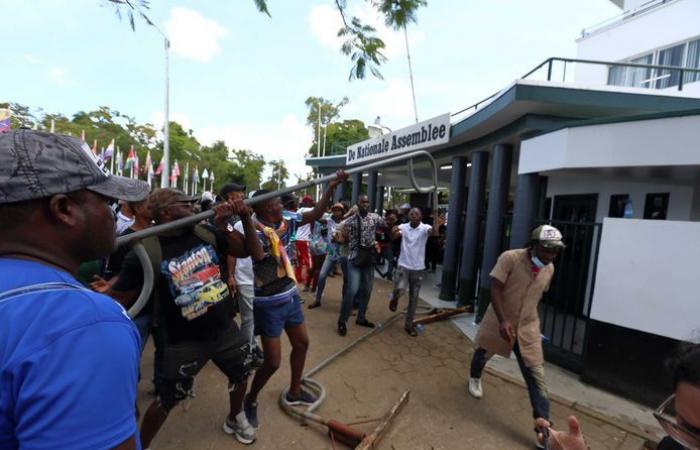On February 17 thousands took to the streets of Suriname's capital, Paramaribo, storming the parliament building of this 600,000 people strong former (formal) dutch colony, located North of Brazil. Protest erupted due to high living cost as prices for energy, goods and transportation exploded and the exchange rate of the currency plummeted.
Suriname's energy market is controlled mainly by two corporations of bureaucratic capital, Rubis and SOL. SOL is part of the Canadian monopoly Parkland group and Rubis is directly french capital. Until recently both received direct financial contributions of the Surinamese state in the form of subsidies so that they would sell energy and gas derivatives more cheaply to the general population. In the beginning of February however, International Monetary Found (IMF) regulations where put into effect leading to cuts in the subsidies in two stages. Already, the first stage of the subsidy-cuts led to a major increase energy prices, particularly diesel and electricity, which in turn necessarily effects all goods transported or processed making the costs of goods of daily demand rise in general.

Due to this unbearable situation, that is further aggravating the extremely harsh living conditions in this semi-colonial country, a mobilization took place for activities on February 17 leading to thousands of masses storming the parliament building and hours of riots in the streets. Against the just demands of actually being able to live on ones wages police cracked down in full force: At least one protester was shot dead, while several others where wounded by gas grenades and rubber as well as live ammunition. Social media was put offline and a curfew was imposed. Nevertheless the police was not able to maintain control of the situation leading to prolonged scuffles and shops and businesses being looted and cars torched to prevent the police from advancing. The protest so far have been very effective as it halted the imposition of the second stage of the decreed IMF subsidy cuts.
The Natural Resources Minister David Abiamofo is quoted to have said: “the IMF wants us to increase the price of electricity in a number of terms [...]. But if we look at the social and political barometer, then we have to hold on for a while and see whether we can use other instruments.“
